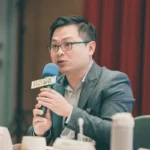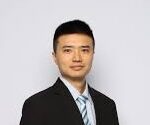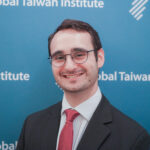Thursday, September 25, 2025 from 12:00PM – 1:30PM (ET)
In-person and Webcast
Event Description:
The Global Taiwan Institute (GTI) is pleased to invite you to a panel discussion titled “Taiwan’s Energy Resilience: Security, Innovation, and Policy.”
Taiwan faces mounting energy challenges at the intersection of security, technology, and politics. As the nation works to reduce its reliance on imported fossil fuels, debates continue over the future of nuclear power, the pace of renewable energy development, and the reform of state-run utility Taipower. At the same time, policymakers and industry leaders are also investing in new technologies and innovative solutions to strengthen Taiwan’s path toward a net-zero future. These issues are central not only to Taiwan’s economic competitiveness and environmental sustainability, but also to its national resilience in the face of regional geopolitical pressures.
To examine Taiwan’s evolving energy landscape, GTI will host four expert speakers. Chia-Wei Chao, of the Taiwan Climate Action Network, will discuss Taiwan’s energy policies, as well as the government’s broader efforts to promote resilience and a transition towards a “net-zero” emissions posture. Kayla Orta (Atlantic Council) will share insights from South Korea’s experience with energy policy, and how those lessons might apply to Taiwan. Joseph Webster (Atlantic Council) will address Taipower reform, Taiwan’s various energy sources and supply challenges, and the role of energy storage. Finally, Jia-Shen Tsai (DSET) will highlight Taiwan’s technological advancements in support of the “net-zero” transition.
The event will be held at the GTI office located at 1836 Jefferson Place NW in Washington DC (approximately one block from the Dupont Circle Metro). Doors will open at 11:30 AM, and the event will begin at 12:00 PM. If you plan on attending in-person, please RSVP by September 23, as seating is limited. A light lunch will be provided. Please direct questions or concerns to Senior Programs Manager Adrienne Wu at awu@globaltaiwan.org.
**Media: Please contact Yuchen Lee at ylee@globaltaiwan.org if you would like to bring additional crew members or equipment, so that we can be sure to accommodate you.
The Panelists:
Chia-Wei Chao is research director at the Taiwan Climate Action Network (台灣氣候行動網絡). Chia-Wei received his PhD degree in Graduate Institute of Environmental Engineering from the National Taiwan University in 2013. His research focuses are sustainability transition and industrial ecology. Dr. Chao has been actively involved in the climate and energy policy since 2007, to provide evidence-based policy suggestions for environmental NGOs. He founded Taiwan Environment and Planning Association 2020 to establish a transdisciplinary platform to maximize the synergies between ecosystem service and renewable energy development. In 2022, five environmental NGOs launched the Taiwan Climate Action Network initiative to accelerate net-zero policy action in Taiwan. Dr Chao led the research unit under the initiative. He also teaches “Pathways towards Net-Zero” at National Taiwan University and National Chengchi University.
Kayla Orta is a nonresident fellow in the Indo-Pacific Security Initiative at the Atlantic Council’s Scowcroft Center for Strategy and Security. Orta is also a nonresident fellow at the European Centre for North Korean Studies. As a former US Department of Defense National Security Education Program Boren scholar, her regional expertise lies in US-Republic of Korea (ROK) ties, North Korea, and US-ROK-Japan trilateral relations at the intersection of security and technology policy. Her work focuses on nonproliferation, nuclear deterrence, and civil nuclear energy markets.
Joseph Webster is a senior fellow at the Atlantic Council’s Global Energy Center, a nonresident senior fellow at the Atlantic Council’s Indo-Pacific Security Initiative, and editor of the independent China-Russia Report. Webster’s broad portfolio focuses on energy and national security, with an emphasis on strengthening constitutional democracy against rival systems. Webster’s energy research centers on the US-China strategic competition and explores the role of energy in enabling artificial intelligence, the military applications of advanced batteries, and the geopolitical consequences of shifting energy systems. His functional specializations include batteries, solar, onshore wind, semi-baseload wind, and oil and gas.Webster’s national security-related work encompasses relations between China and Russia, including the countries’ economic interactions, planning for a potential Taiwan-related contingency, and shipbuilding and maritime supply chains.Webster completed a master’s degree in international relations from Johns Hopkins University’s Paul H. Nitze School of Advanced International Studies, where he was a Mount Vernon fellow. He holds a bachelor’s degree in economics from the University of Maryland. Webster is proficient in Mandarin and hails from Salisbury, Maryland.
Jia-Shen Tsai is a non-resident fellow at the Research Institute for Democracy, Society, and Emerging Technology (DSET) and a policy analyst at the Niskanen Center. He holds a Master of Environmental Management from Duke University, specializing in environmental policy and economics. His research focuses on energy transition, transportation decarbonization, and carbon pricing, with an emphasis on pathways that balance national security considerations and public well-being.
The Moderator:
Ben Levine is a programs coordinator at the Global Taiwan Institute. He graduated from George Washington University with a MA in Chinese Language and Culture. Ben received his BA from Boston University majoring in international relations, with a functional concentration in international economics and a regional concentration in Asia. Previously, Ben was awarded a fellowship from the Taiwan Education and Research Program at GWU to research Taiwanese defense policy and hypothetical US responses. He also was awarded a Huayu Enrichment Scholarship in August 2022, allowing him to spend 9 months in Taipei at National Chengchi University studying Mandarin. His research focuses on Taiwan’s defense policy and various social and economic issues in Taiwan.





